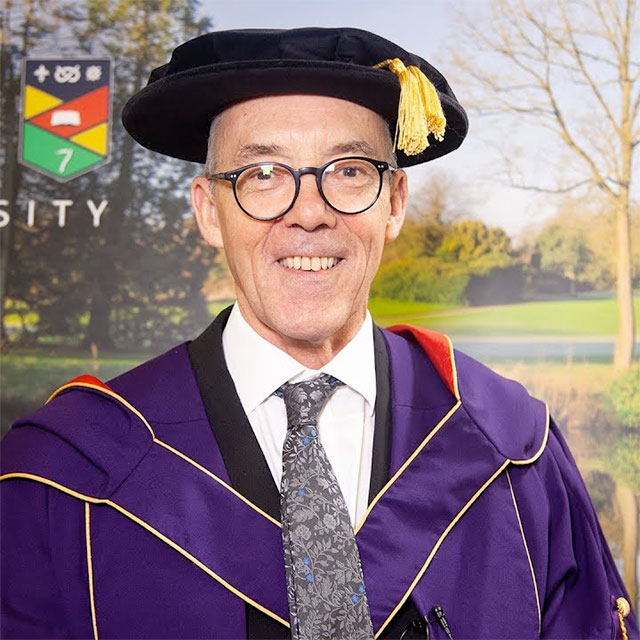Mike Jackson, Keele Alumnus and Honorary Graduate

Mike Jackson graduated in 1980, and during his time at Keele founded North Staffs Gay Switchboard, an information and counselling service offering support to LGBT people. He then went on to become co-founder of Lesbians and Gays Support the Miners (LGSM) during the 1984 Miners’ Strike - which was immortalised in the award-winning film ‘Pride’.
Q. Why do you think it’s important to have out and visible LGBT people in the University?
LGBT+ people always have been a minority presence in any human society and at any time in history. As such we have always been vulnerable to persecution and in many cultures throughout history we have been oppressed physically, psychologically and politically. It would be impossible to fight that oppression in any effective way without coming-out and self-proclaiming our human rights to be equal citizens. Our experiences of being students have a life-long impact on us. For many, it is the first time that young people have left home and it brings us opportunities to meet people from a multitude of different cultures, backgrounds and experiences. For a young LGBT+ person it may be the first opportunity where they can meet out individuals - and supportive allies - who offer support and guidance.
Universities should, above all else, be crucibles of enlightenment, rational thinking and the progression of human thought.
Q. What is it like ‘coming out’ as an LGBT person?
Coming out in a supportive, nurturing community is liberating and empowering. Without that support though it can be very difficult, sometimes traumatic. Coming out is a life-long, continuous process. I was fortunate enough to have come out before I became a student at Keele. However being a Keele student - such a campus-orientated university - developed and empowered me personally as well as academically. It is difficult to imagine that same nurturing experience for a student attending university in a large city.
Q. How important is the Keele staff LGBTI Network?
It is particularly important for staff to be out as an exemplar to all students. The staff LGBTI network provides a vital forum for monitoring and influencing equalities progress. However it cannot stand alone separate to other equalities challenges such as race, gender, class, age and disability. If coming out for the individual is a life-long process then ‘equality’ itself is an ongoing, ever-changing process for and for the benefit of all citizens.




